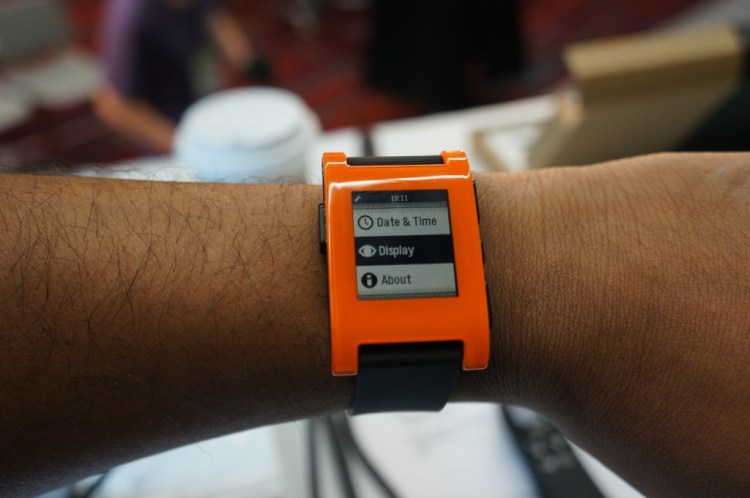Jack Gold is the founder and principal analyst at J.Gold Associates.
Everyone is talking about smartwatches as being the next big thing, with rumors that Apple, Google, Samsung are each working on one. Yet for all the hype, I think the notion of a smartwatch tied to a cell phone that is used simply as a remote screen and input device will be a failure.
Yes, there will be some niche users that want to buy one so they don’t have to take their phones out of their pockets or purses frequently. But for most users, having yet another device — and potentially an expensive one at that — while still carrying a smartphone around will be too much.
Successful technology that is truly helpful and transparent is what most consumers want. But a smartwatch as a remote screen coupled to a smart phone is not in that camp. The additional utility to make users spend their money is just not there.
Smart watches could be hugely successful, if we change our expectations. We need to change the conversation and address the whole notion of wearable devices in general. We shouldn’t look at duplication in functions worn on another part of your body. Rather, if I look at wearable devices as part of a personal sensor network and not just a remote window to my phone, that would have far greater value and one I’d be willing to pay for.
The sensor network could monitor my health (either as I work out, or if I have a medical condition). It could tell me where I’m located (not just for driving directions). It could tell me how many calories I’ve burned today (and consumed). It could monitor my blood pressure or sugar levels or oxygen, or numerous other potentially high value health things. And most importantly, it could truly empower me with pertinent information about myself on a continuous basis, much as the smartphone did for messaging. (Yes, there are a few such devices today, like Jawbone’s Up and Fitbit’s products, but they tend to be stand-alone, one-off designs, which aren’t integrated into my world very well and don’t talk to each other (they also tend to be costly).
So, in my opinion, all of this talk about smartwatches is missing the point. It’s a personal network of wearables, and perhaps more than one (or, at least more than one sensor transparently embedded in clothing or other things we carry) that promises real benefits to each of us. The smartphone can remain the communication hub, with each wearable tech device connected (think Bluetooth but on steroids), recording and or transmitting data into the cloud (of course, security will need to be factored into all of this). Think of this as a configurable environment (not everyone will choose the same sensors or monitoring).
If we change the discussion from communications to sensors, I think smart wearable devices have a huge future (especially at reasonable price points that large volumes could bring). Many won’t have to include a display or be very bulky (thus potentially lowering the cost to throw-away levels). Chip vendors will find a new outlet for their devices through embedded sensors tied to processors. And the ecosystem will find great ways to create apps for these devices that will not only create new companies, but also create real value to me personally — something I and many consumers would be willing to pay for longer term.
So forget about smartwatches as communications devices. And forget remote displays to my other devices. That’s not where the future is. In the longer term smart watches will likely fail (they’ve been tried before — remember SPOT?). But wearable tech could be a huge success.
And hopefully, as Apple, Samsung, et al, bring devices to market, and support real standards for interconnection, that’s where they will direct both the tech and the investment. Only time will tell, but I’d bet many upcoming smartwatches won’t be around a year after they are released — while true wearables offering additional benefits will.
 Jack Gold is the founder and principal analyst at J.Gold Associates, based in Northborough, Mass. He covers the many aspects of business and consumer computing and emerging technologies.
Jack Gold is the founder and principal analyst at J.Gold Associates, based in Northborough, Mass. He covers the many aspects of business and consumer computing and emerging technologies.


